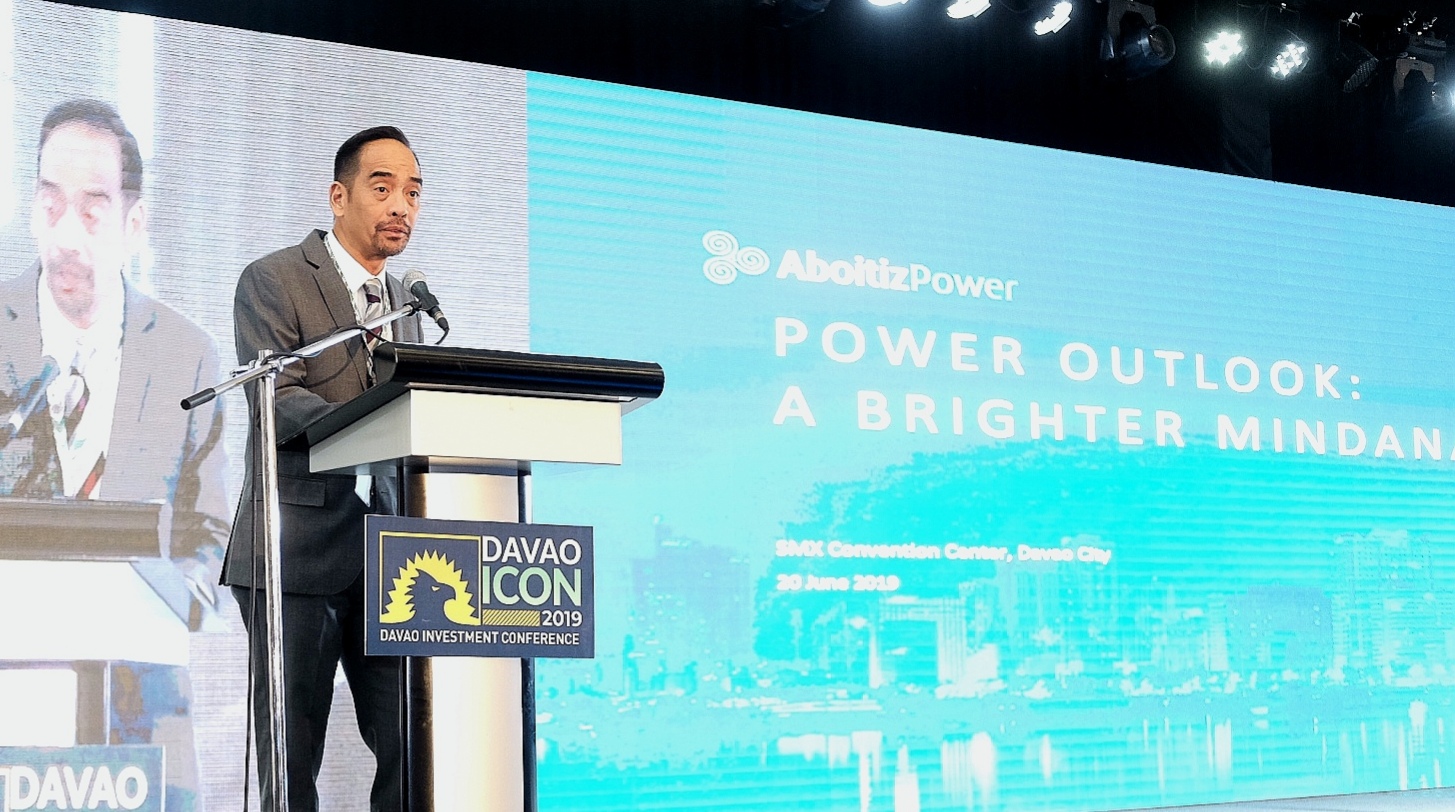‘WAG MALIITIN: EPIRA key to low electricity prices, better service – AboitizPower
- June 20, 2019
- 0

“(The) Philippines may still have one of the most expensive power rates in Asia. That may be true for now, but the data show that prices in the Wholesale Electricity Spot Market (WESM) has a downward trajectory,” Rubio said as a keynote speaker during the Davao Investment Conference (ICON) in Davao City.
“(The) Philippines may still have one of the most expensive power rates in Asia. That may be true for now, but the data show that prices in the Wholesale Electricity Spot Market (WESM) has a downward trajectory,” Rubio added.
In 2010, WESM prices were around P 6.43 per kWh which went down to P 3. 28 per kWh in 2018.
“It is important to take into consideration that the power industry in other ASEAN countries is subsidized, hence the substantial difference between the electricity prices of countries with and without subsidies,” he said.
“Are prices still high? Perhaps. But it is continuously decreasing. In fact, from 2011 to 2016, only government charges have increased while charges controlled by the private sector have sustained a downward trajectory.”
According to data Rubio cited, EPIRA brought private investments in the power sector by almost 60 percent from 13, 380 MW in 2011 to 21, 423 MW in 2016. By 2020, the industry expects to generate 5,000 MW.
Rubio said that news report might have always highlighted when WESM prices are high but have failed to note that more than 95 percent of the time, prices in the spot market have been below P 5 and sometimes prices went negative back in 2018.
Rubio added that the government and other sectors must promote a competitive atmosphere for EPIRA to fully thrive.
“EPIRA is working. And only when there is strong support both from the government and private sector can it realize its full potential and achieve its ultimate goal of making electricity sustainable and accessible to all Filipinos.”
“Competition among players, better services, and better technologies in the power plant will definitely result in more efficient production and more value to customers.”
He further explained that EPIRA was the reason behind Mindanao’s surplus of energy supply, which is a huge difference from the eight-hour power outages the island experienced four years ago.
“EPIRA is working and only when there is strong support both from the government and private sector can it realize its full potential and achieve its ultimate goal of making electricity sustainable and accessible to all Filipinos,” said Rubio.
He also said that the full implementation of the WESM in Mindanao will open up a world of possibilities for big customers as well as power generators.